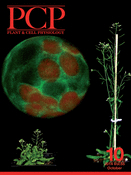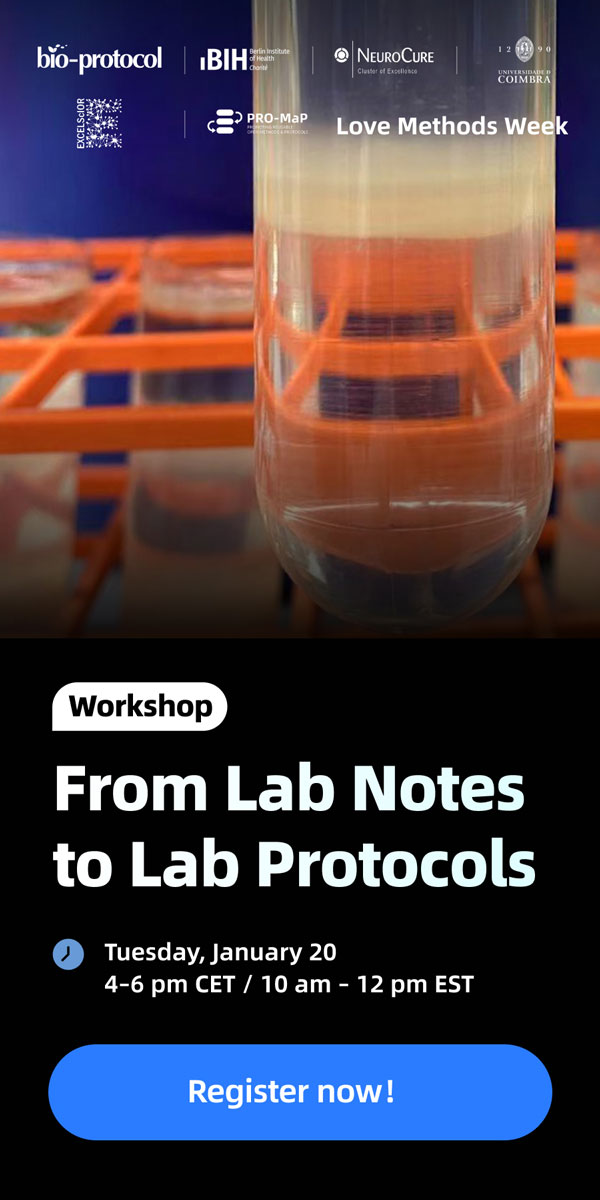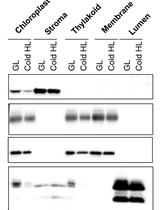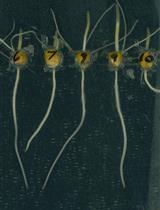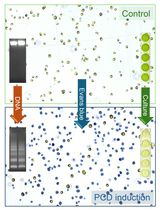- EN - English
- CN - 中文
MIFE Technique-based Screening for Mesophyll K+ Retention for Crop Breeding for Salinity Tolerance
采用MIFE技术筛选持K+叶肉用于耐盐作物的育种
发布: 2015年05月05日第5卷第9期 DOI: 10.21769/BioProtoc.1466 浏览次数: 10428
Abstract
Potassium is known as a rate-limiting factor for crop yield and plays an important role in plants response under abiotic stresses. Recently, cytosolic K+ retention ability in leaf mesophyll has emerged as an important component of plant salt tolerance mechanism (Wu et al., 2013; Wu et al., 2014; Wu et al., 2015). In this protocol, the procedure for screening leaf mesophyll for K+ retention by the MIFE (microelectrode ion flux estimation) technique is described in detail using wheat as an example. By measuring NaCl-induced K+ efflux in leaf mesophyll, a large number of plant accessions can be screened and categorised according to their salinity stress tolerance. The method provides a rapid and reliable tool that targets the activity of specific membrane transporters directly contributing to salinity tolerance trait and, because of this, has a competitive advantage over traditional whole-plant phenotyping. While the focus of this protocol is on wheat, the suggested method may be adopted for screening K+ retention in leaf mesophyll in any other crop species.
Keywords: K+ retention (钾潴留)Materials and Reagents
- Two to three week old wheat seedlings
- NaCl (Sigma-Aldrich, catalog number: 746398 )
- KCl (Sigma-Aldrich, catalog number: 746436 )
- CaCl2 (Sigma-Aldrich, catalog number: C5670 )
- K+ LIX (liquid ion exchanger) (Sigma-Aldrich, catalog number: 60031 )
- Tributylchlorosilane (Sigma-Aldrich, catalog number: 282707 )
- ddH2O
- 95% ethanol (VWR International, catalog number CHESEA042-20L-P )
- Commercial bleach (contains 42 g/L NaClO)
- Agar (Oxoid, catalog number: LP0011 )
- Parafilm
- Basic salt medium (BSM) solution (mM) (see Recipes)
- Backfilling solution for K+ ion selective microelectrode (see Recipes)
- Filling solution for a reference electrode (see Recipes)
- K+ calibration solutions (μM) (see Recipes)
- Potting mix (see Recipes)
Equipment
- The MIFE (microelectrode ion flux estimation) system (designed, manufactured and distributed by the University of Tasmania)
(http://www.phys.utas.edu.au/physics/biophys/mifecom/MIFEHome/Home.html) - Glasshouse
- Vertical electrode puller (Narishige, model: PP-830 )
- Electrode filling station (contains a three-dimensional micromanipulator and a microscope)
- Laboratory fume cupboard (model: 1800)
- Inverted tissue culture microscope (Radical Instruments, model: RTC-6 )
- Microscope (Nikon, model: 100100 ) used in the electrode filling station
- Micromanipulator (Narishige, model: MMT-5 ) used in the electrode filling station
- Oven (Euromiad compact cooker, model: MC 110 T )
- Distiller (Labglass, model: 03DD )
- pH meter (Thermo Fisher Scientific, model: Orion 420 A +)
- Burner
- Magnetic stirrer (ISG® Hotplate and Magnetic stirrer, model: 153-005 ) and stirring bars
- Borosilicate glass capillaries (GC 150-10) (1.5 O.D. x 0.86 I.D. x 100 L mm) (Harvard Apparatus, catalog number: 30-0053 )
- Borosilicate glass capillaries (GC 100-10) (1.0 O.D. x 0.56 I.D. x 100 L mm) (Harvard Apparatus, catalog number: 30-0016 )
- Petri dishes (85 mm and 35 mm diameters)
- Perspex holder for immobilization of the leaf samples
- Metal electrode rack for electrode silanization
- Plastic electrode holder for storing silanized electrode blanks
- Standard surgical blades (Kiato stainless steel, model: BS 2982:1992, ISO 7740 )
- Syringe (Terumo, catalog number: SS-10L )
- Plastic needle (20 μl) (Eppendorf, catalog number: 5424 956.003 )
- Plastic-coated weights
- Silver wire (A-M Systems, catalog number: 787000 )
- 4.5 L PVC (polyvinyl chloride) pots
Procedure
文章信息
版权信息
© 2015 The Authors; exclusive licensee Bio-protocol LLC.
如何引用
Wu, H., Shabala, L., Zhou, M. and Shabala, S. (2015). MIFE Technique-based Screening for Mesophyll K+ Retention for Crop Breeding for Salinity Tolerance. Bio-protocol 5(9): e1466. DOI: 10.21769/BioProtoc.1466.
分类
植物科学 > 植物生理学 > 非生物胁迫
植物科学 > 植物生理学 > 离子分析
生物化学 > 其它化合物 > 离子 > 钾
您对这篇实验方法有问题吗?
在此处发布您的问题,我们将邀请本文作者来回答。同时,我们会将您的问题发布到Bio-protocol Exchange,以便寻求社区成员的帮助。
Share
Bluesky
X
Copy link



